Breast Reconstruction in Berlin
Search and Compare the Best Clinics and Doctors at the Lowest Prices for Breast Reconstruction in Berlin

Find the best clinics for Breast Reconstruction in Berlin
With Medijump you can browse 4 facilities offering Breast Reconstruction procedures in Berlin. The cheapest price available is $5,863 in Berlin. And for the cheapest price globally, prices start from $477 in India.
Breast Reconstruction in Germany
Price: $ 5,863
Breast Reconstruction in Berlin
Price: $ 5,863
India offers the best prices Worldwide
Price: $ 477
From 147 verified reviews
conny Schmelzer, 13 September 2020
Kudos to the outpatient surgery station, everything was explained, very nice team, I felt very well looked after. I was met by very friendly nurses at Ward 15. The further care on the ward is also very, very pleasant.
From 3 verified reviews
Katrin Zug, 13 May 2019
I had opted for a liposuction Feb. 2019 (area butt, legs) at Fr Dr Kleinschmidt. I received a warm welcome from the nurse on the day of surgery. I had a tranquilizer tablet before surgery and so everything was a bit more relaxed as I opted for a local anesthetic. You still have to be brave, but if you really want something, you can do it. Now and then you have felt a tweak. The sister and also Fr Dr Kleinschmidt have always inquired between, if everything is OK. We talked very nicely at the surgery and therefore the time went much faster. Then I got my pants on. My friend picked me up! Absolutely a painkiller. take, then it is bearable. The next day I had to follow-up, wound control and new associations. I was ordered by the week to check if everything healed well. I can only recommend Fr Dr Kleinschmidt!
Dr. Onno Frerichs - Plastic Surgery, located in Bismarckstrasse, Berlin, Germany offers patients Breast Reconstruction procedures among its total of 28 available procedures, across 3 different specialties. Currently, there's no pricing information for Breast Reconstruction procedures at Dr. Onno Frerichs - Plastic Surgery, as all prices are available on request only, whilst the national average price is approximately $5,863. All procedures and treatments are undertaken by just a small team of specialists, with 3 in total at the Hospital, and they are accredited by AAPS - American Association of Plastic Surgeons
Praxis Fur Plastische Chirurgie, located in Bismarckstrasse, Berlin, Germany offers patients Breast Reconstruction procedures among its total of 26 available procedures, across 1 different specialties. Currently, there's no pricing information for Breast Reconstruction procedures at Praxis Fur Plastische Chirurgie, as all prices are available on request only, whilst the national average price is approximately $5,863. There are many specialists available at the Hospital, with 8 in total, and they have multiple recognized accreditations, including: VDÄPC - Vereinigung der Deutschen Ästhetisch-Plastischen ChirurgenDGPRÄC - Deutsche Gesellschaft der Plastischen, Rekonstruktiven und Ästhetischen Chirurgen
Compare Before & After Photos of _procedure_photos.phpBreast Reconstruction
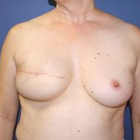
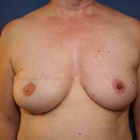
Front view
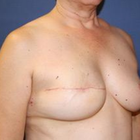
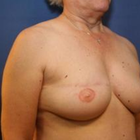
Half-side view
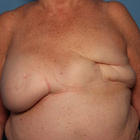
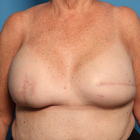
Front view
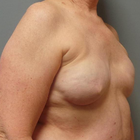
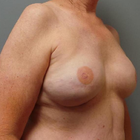
Half-side view
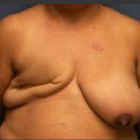
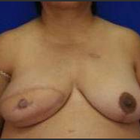
Front view
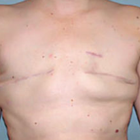
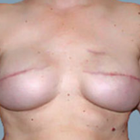
Front view
WHY US?
At Medijump, we're making medical easy. You can search, compare, discuss, and book your medical all in one place. We open the door to the best medical providers worldwide, saving you time and energy along the way, and it's all for FREE, no hidden fees, and no price markups guaranteed. So what are you waiting for?

Free

Best Price

Widest Selection

Risk-Free
What you need to know about Breast Reconstruction in Berlin
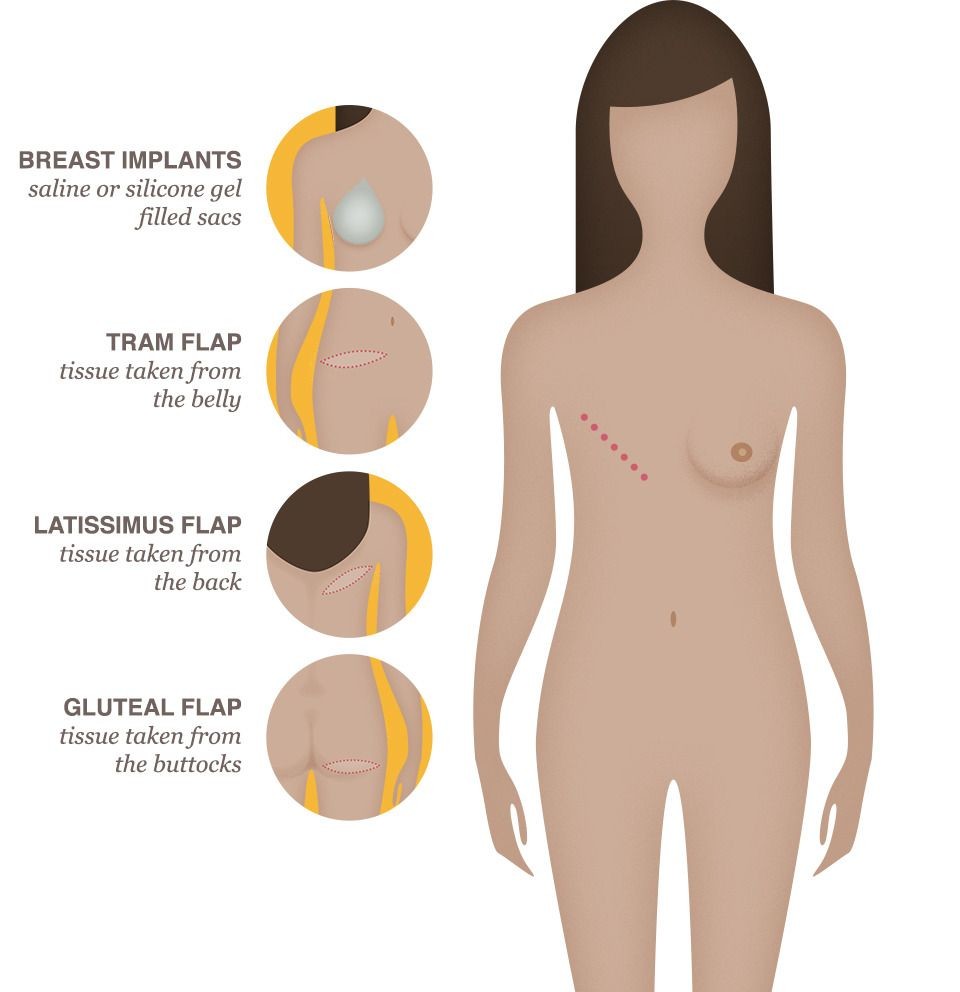
Breast reconstruction is a significant surgery undertaken to rejuvenate the physical form of a woman's chest after losing one or both breasts to cancer or another disease. In Berlin, medical centres are well-equipped with top-tier talent in plastic surgery to facilitate this intricate procedure. Every woman's journey is different, and her treatment plan is personalized, considering her unique circumstances and needs.
It's heartening to know that breast cancer treatments like chemotherapy or radiation therapy aren't impeded by reconstruction. Moreover, this surgery doesn't spike the risk of cancer coming back. Undeniably, breast reconstruction is a major surgery with inherent risks, including chances of infection, complications with wound healing, and potential dilemmas related to implants.
What is the cost of Breast Reconstruction in Berlin?
Undergoing surgery like Breast Reconstruction brings along a financial commitment. The expense varies extensively, depending on many factors like the complexity of the procedure, the medical professional performing the surgery, the hospital's facility, and the region, amongst others. Generally, the cost might range between $15,000 to $50,000, including multiple surgeries or intricate techniques within this estimate.
Thankfully, in many cases, insurance plans cover such surgical procedures, especially given mandates like the Women's Health and Cancer Rights Act of 1998 in the U.S. Still, out-of-pocket expenses associated with co-payment or deductibles can add up. It's recommended to navigate these aspects with your insurance provider and your chosen healthcare facility in Berlin.
What does a Breast Reconstruction Procedure Involve?
Breast reconstruction generally happens in stages, starting with the most complex first, which may either occur at the same time as the mastectomy or later, based on the individual’s specific health conditions or treatment plan.
Two main techniques are employed in breast reconstruction. One is the use of an implant, saline, or silicone to recreate the breast shape. Two, autologous or flap reconstruction where tissue from the patient’s body like the abdomen or thigh is relocated to recreate the breast shape. The method selected is dependent on individual factors like the patient’s health, personal choice, cancer type, and stage.
After the primary surgery and post an adequate healing period, the surgeon performs a second procedure to recreate the nipple and areola. Later, to give it a natural look, the nipple-areola complex is tattooed. Remember that although it is a common procedure, complications might arise involving reaction to anaesthesia, bleeding, infection, poor healing or the need for further interventions.
How Long Should I Stay in Berlin for a Breast Reconstruction Procedure?
Post-breast reconstruction surgery, patients typically stay in the hospital for two to five days. However, if the reconstruction was done immediately after the mastectomy, the stay could extend from three to six days.
Overall, a patient should expect to remain in Berlin for approximately two weeks post-surgery. This allows enough time for necessary follow-ups and to address any complications, if they arise. As with any major surgical procedure, do not hasten the healing process.
What's the Recovery Time for Breast Reconstruction Procedures in Berlin?
The recovery timeframe for breast reconstruction procedures in Berlin varies from patient to patient. Generally, for implant-based procedures, patients may take about four to six weeks to recuperate before they return to normal routines. For more complex autologous techniques, particularly those using abdominal tissue, patients might require six to eight weeks for recovery.
Recovering patients need to temper their activities during this period. Avoid lifting heavy objects and defer strenuous exercise until your physician gives a clear signal. Medical assistance should be promptly sought if any discomforting symptoms like chronic pain, redness or swelling surface.
What's the Success Rate of Breast Reconstruction Procedures in Berlin?
Medical success cannot just be measured in terms of complication-free postoperative progress or longevity of implants used in breast reconstruction. Patient satisfaction with their surgery, their psychological well-being following the operation, their perception of body image, and their quality of life post-surgery are equally important factors to consider. Studies indicate that between 85% to 90% of women who have undergone breast reconstruction are satisfied with the long-term results.
In Berlin, dedicated hospitals and healthcare facilities strive to offer high-quality treatment, ensuring the best possible surgical outcomes using progressive technology and experienced professionals. Still, everyone's response to surgery varies, and outcomes depend on factors such as overall health, age, body type, and compliance with surgical advice.
Are there Alternatives to Breast Reconstruction Procedures in Berlin?
Indeed, there are alternatives to breast reconstruction in Berlin. The journey of every woman is unique and how she chooses to deal with the loss of a breast, or both, is a highly personal decision. Alternatives include:
- Breast Prostheses or Forms: They are silicone forms that imitate the appearance and feel of natural breast tissue. They come in diverse sizes, shapes and colours to closely match the woman's skin tone.
- Flat Closure: In this method, the surgeons sew up the chest wound smoothly, without constructing a breast mound. This option appeals to women who choose not to have more surgeries or body implants.
- Opting not to undergo reconstruction at all, also termed as "going flat: This method exhibits the woman's choice to live comfortably with her new body shape without artificial substitutes or further surgeries. It is a fully personal decision deserving respect and support.
Each of these options has pros and cons, and the choice depends on the woman’s personal preference, health status, lifestyle, and perception of her body. Regardless of the choice, it’s important to regularly monitor breast health and engage in practices that promote overall wellness.
What Should You Expect Before and After the Breast Reconstruction Procedure?
Before the surgery, comprehensive discussions with the surgeon will take place to understand treatment objectives, outcomes, and possible complications. Preoperative tests, lifestyle modifications, and nutritional advice may form a part of the preparatory process.
Postoperative care is equally important: discomfort, swelling, and bruising are normal and subside over time. Pain management strategies will be provided to help you manage discomfort effectively. Your surgeon will provide personalised guidance on caring for your surgical site, usage of medications, and physical activities.
What sort of Aftercare is Required for Breast Reconstruction Procedures in Berlin?
The following points should be considered post-operation:
- Follow the instructions given by your doctor and take your medicines as and when prescribed.
- Consult a nutritionist for a diet plan. A healthy diet helps you recover faster.
- Do not wear a padded or underwire bra until allowed by your doctor.
- Use surgical bras in the early few days after the surgery.
- Avoid excessive unnecessary movement of your breasts.
- Do not lift heavy objects and children - it could stretch on your stitches.
- Change your bandage whenever it gets dirty. Germs can cause infection.
- Do not take a bath when the bandages are still intact. A wet bandage can also be the cause of infection.
- Abstain from sexual activity for at least 6 weeks.
- Take rest - give yourself time to recover.
How Do I Prevent Cancer from Recurring?
Preventing cancer recurrence largely revolves around a balanced, healthy lifestyle coupled with regular medical check-ups. Regular exercise, maintaining a healthy weight, and eating nutritiously can contribute to cancer prevention. Smoke cessation and limiting exposure to secondhand smoke are crucial for both prevention and postoperative recovery.
Regular breast self-examinations, as well as mammograms and follow-up visits, are critical for early detection of any recurrence. Stress management techniques like yoga, meditation, and spending time in nature can also play an essential role in overall health.
Your medical team in Berlin is there to support you, offering advice tailored to your individual health status and medical history. Remember, proactive health checks are key to maintaining overall health and preventing the recurrence of diseases like cancer.
What is the ideal time to have Breast Reconstruction surgery after a Mastectomy in Berlin?
The decision regarding when to have Breast Reconstruction following a Mastectomy in Berlin is largely based on the individual's health status, treatment plan, personal preferences, and discussions with the oncology team. Breast reconstruction can be done at the time of mastectomy (immediate reconstruction) or at a later date (delayed reconstruction). Immediate reconstruction might offer psychological benefits and less overall surgery since both procedures are done together. Yet, if additional treatments such as radiation therapy are required post-mastectomy, opting for delayed reconstruction could be advisable to avoid risks posed by radiation to the new construct.
Remember that deciding on the timing of breast reconstruction is a personal choice and should be made in consultation with your healthcare providers. They can provide specific guidance based on your health condition and treatment plan.
How Will Breast Reconstruction in Berlin Impact My Routine Mammograms and Breast Cancer Detection?
Breast reconstruction surgery may impact the way routine breast cancer screenings are conducted. After a mastectomy with or without reconstruction, women usually don't need routine screening mammograms on the treated side since all breast tissue has been removed. However, they would need routine mammograms for the untreated breasts.
If you've had reconstruction using your own body tissue, your surgeon or oncologist will guide you on whether or not you'll require mammograms on the reconstructed breast. Remember, mammograms can still be performed on reconstructed breasts, and self-breast exams should be a regular part of your health routine.
Whilst the information presented here has been accurately sourced and verified by a medical professional for its accuracy, it is still advised to consult with your doctor before pursuing a medical treatment at one of the listed medical providers
No Time?
Tell us what you're looking for and we'll reachout to the top clinics all at once
Enquire Now

Popular Procedures in Berlin
Prices Start From $497

Prices Start From $208

Prices Start From $834

Prices Start From $500

Prices Start From $93

Prices Start From $85

Recommended Medical Centers in Berlin for Breast Reconstruction

- Interpreter services
- Translation service
- Religious facilities
- Medical records transfer
- Medical travel insurance
- Health insurance coordination
- TV in the room
- Safe in the room
- Phone in the room
- Private rooms for patients available

- Interpreter services
- Translation service
- Religious facilities
- Medical records transfer
- Medical travel insurance
- Health insurance coordination
- TV in the room
- Safe in the room
- Phone in the room
- Private rooms for patients available

- Interpreter services
- Translation service
- Religious facilities
- Medical records transfer
- Medical travel insurance
- Health insurance coordination
- TV in the room
- Safe in the room
- Phone in the room
- Private rooms for patients available

- Interpreter services
- Translation service
- Religious facilities
- Medical records transfer
- Medical travel insurance
- Health insurance coordination
- TV in the room
- Safe in the room
- Phone in the room
- Private rooms for patients available

- Interpreter services
- Translation service
- Religious facilities
- Medical records transfer
- Medical travel insurance
- Health insurance coordination
- TV in the room
- Safe in the room
- Phone in the room
- Private rooms for patients available

- Interpreter services
- Translation service
- Religious facilities
- Medical records transfer
- Medical travel insurance
- Health insurance coordination
- TV in the room
- Safe in the room
- Phone in the room
- Private rooms for patients available

- Interpreter services
- Translation service
- Religious facilities
- Medical records transfer
- Medical travel insurance
- Health insurance coordination
- TV in the room
- Safe in the room
- Phone in the room
- Private rooms for patients available

- Interpreter services
- Translation service
- Religious facilities
- Medical records transfer
- Medical travel insurance
- Health insurance coordination
- TV in the room
- Safe in the room
- Phone in the room
- Private rooms for patients available

- Interpreter services
- Translation service
- Religious facilities
- Medical records transfer
- Medical travel insurance
- Health insurance coordination
- TV in the room
- Safe in the room
- Phone in the room
- Private rooms for patients available

- Interpreter services
- Translation service
- Religious facilities
- Medical records transfer
- Medical travel insurance
- Health insurance coordination
- TV in the room
- Safe in the room
- Phone in the room
- Private rooms for patients available
Breast Reconstruction in and around Berlin
About Berlin
Berlin is the capital and the largest city of Germany and with over 3.7 million inhabitants; it is the second-most populous city of the European Union after London. It is an alpha city of culture, politics, media, and science. The metropolitan city is also a popular tourist destination, thanks to its rich history, vibrant culture, lively parties, delightful food, and incredible architecture.
Today, Berlin is one of the most popular destinations for medical tourism. The number of medical tourists coming to the city increases each year. Most of them travel from Poland, the Netherlands, France, and the Middle East. Some of the more popular treatments are oncology, cardiology, dentistry, and even tummy tuck. Although the cost is considerably higher than the neighboring countries such as Hungary, medical tourists still come for high-quality treatment with cutting-edge technology. Thousands of medical tourists prefer Berlin for the following reason:
- A patient-focused health-care system with a wide range of treatment.
- Qualified doctors, surgeons, nurses, and other medical practitioners.
- Hospitals equipped with modern technology.
- Higher quality treatments, care, and services.
- Attractive destination and environment, perfect for rejuvenating and recovery.
Popular Areas in Berlin
As a famous tourist destination, Berlin has numerous attractions to see and many things to do. Whether you want to indulge in its culture, eat its food, or have a non-stop party, there will always be something for you.
- Museum Island (Museumsinsel) is a UNESCO World Heritage Site. It is a unique group of five world-renowned museums and it is the perfect place for those who love history and culture. From Ancient Egyptians, Roman Antiquity, the civilizations of the ancient Greek, Christian, and Islamic arts, to 19th Century European Art is available to see in the museums.
- Brandenburg Gate is Berlin’s most famous landmark. This 18th-century neoclassical monument used to symbolize divided Germany during the cold war since the Berlin Wall shut off access to the gate for both East and West Germans. Now, it has turned into a symbol of unity.
- Berlin Wall Memorial is located in the middle of the city where East and West were once divided. The memorial extends along 1.4 kilometers of the former border strip and contains the last piece of the Berlin Wall. The historical remnants and traces of borders are preserved on display so visitors can see and learn more about the history behind it.
- Berlin Cathedral (Berliner Dom) is the biggest church building in Berlin. The architecture and interior will leave visitors in awe. The architect, Julius Raschdorff, used the style of the Italian High Renaissance and Baroque elements. The interior is magnificent with marble columns and golden ornaments in abundance.
- Glass Dome of the Reichstag is an architectural masterpiece constructed on top of the rebuilt Reichstag building. The rooftop terrace and dome offer an outstanding view of the parliamentary and government district as well as Berlin’s skyline. There is also a restaurant on the rooftop.
Weather and Climate in Berlin
Just like the rest of Germany, Berlin enjoys four distinct seasons, making it a year-round destination for tourists. Spring starts around March and ends in May. This season is characterized by the arrival of cherry blossoms and the increase of the temperature. The temperature is around 4.3 °C in early March and will get as warm as 19.4 °C in May.
Summer runs from June to August with an average temperature of 24 °C but can get as high as 30 °C in the hottest days. This season is the peak of tourism because people can enjoy outdoor activities, so prices can be a lot higher than usual.
The months of September and November are Autumn. The weather in this season is similar to summer, which is warm and pleasant. However, the temperature can drop significantly in late November. Tourists usually visit the city during autumn for the Oktoberfest.
Winter in the city can be freezing, cloudy, and wet. The temperature can plummet to -10 °C on the coldest days. The city is generally very festive during this season, thanks to the Christmas spirit.
Getting Around in Berlin
Berlin has two main airports: Berlin Tegel Airport and Berlin Schönefeld Airport. The main international airport is the Berlin Tegel Airport located in the northwest. The airport serves domestic flights to other cities in Germany and international flights to almost every major city around the globe. Berlin Schönefeld Airport is the secondary airport that mainly serves budget airlines such as EasyJet and Ryanair. It is also an international airport that operates domestic and international flights. To get to the city center from both airport, bus, train, taxi or car are available.
To get around Berlin, there are various transportation modes to choose from. The main means of transport in the capital is the U-Bahn system, which comprises 9 metro lines and 173 stations. During peak hours, trains run every two to five minutes and every ten minutes in the evening and on Sundays. Along with the U-Bahn, the S-Bahn system is also one of the main means of transport. It has 15 lines serving 166 stations and has a longer average distance between station than the U-Bahn.
Tourists can also ride the tram and the tram lines mostly operate in the eastern neighborhoods since the tram lines in the former West Berlin were replaced by bus and U-Bahn. The tram lines operate 24 hours a day in some areas.
The bus in Berlin has around 151 lines running every 10 minutes for 24 hours. The buses also replace metro trains during closing hours. Taxis can be found easily enough around the city, with more than 7,000 taxicabs. The taxis can be identified by the beige or ivory color. The base fare is 3.90 EUR and tourists can hail the taxis from the street, by phone, or via an app. Other transportation such as Ferry, car sharing, and e-scooter is also available.
Tourist Visas in Berlin
The citizens of Australia, Canada, Israel, Japan, New Zealand, Poland, the United States, and Switzerland can enter and stay in Berlin for up to 90 days. Since Germany is a member of the European Union, citizens from other European Union countries do not need to obtain a visa to enter. Citizens of other countries need a Schengen Visa. It is advisable to always check the requirements for Germany Visa Application before applying.
Additional Information
- Local Currency: The official currency is the euro (EUR). 1 USD is equivalent to 0.81 EUR.
- Money & Payments: Tourists can find ATMs almost everywhere within the city. Although credit card acceptance is growing, remember that cash is king in the city. Therefore, it is best to always carry some cash. Note that it is considered rude to leave a tip on the table. You should tell the server the total amount you want to pay. For a good restaurant service, a 10% tip is acceptable. For taxis, tourists can tip 10%, rounding to a full euro.
- Local Language: German is the official language. Most people in the city will speak English, in hotels, restaurants, and shops.
- Local Culture and Religion: Over 60% of Berlin’s population has no religious affiliation, while 30% identified as Christian.
- Public Holidays: As most of German, Berlin celebrates major Christian religious holidays such as Easter and Christmas.
Popular Searches
- Plastic Surgery in Thailand
- Dental Implants in Thailand
- Hair Transplant in Thailand
- Breast Augmentation Thailand
- Gastric Sleeve in Thailand
- Gender Reassignment Surgery in Thailand
- Laser Hair Removal in Bangkok
- Botox in Bangkok
- Dermatology in Bangkok
- Breast Augmentation in Bangkok
- Coolsculpting in Bangkok
- Veneers in Turkey
- Hair Transplant in Turkey
- Rhinoplasty in Turkey
- Stem Cell Therapy in Mexico
- Rhinoplasty in Mexico
- Liposuction in Mexico
- Coolsculpting in Tijuana
- Rhinoplasty in Korea
- Scar Removal in Korea
- Gastric Sleeve in Turkey
- Bone Marrow Transplant in India
- Invisalign in Malaysia
- Plastic Surgery in the Dominican Republic
- Tummy Tuck in the Dominican Republic
- Plastic and Cosmetic Surgery in Poland
- Rhinoplasty in Poland
- Hair Implant in Poland
- Dental Implants in Poland
- IVF in Turkey


